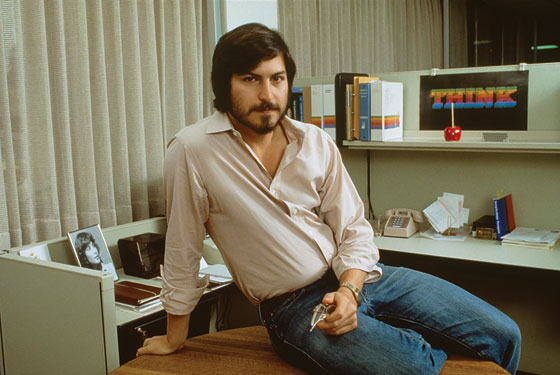There’s another passage from Andrew O’Hehir’s recent Salon interview with Alex Gibney I wanted to put up when I published the Going Clear one, a section about his forthcoming Steve Jobs documentary, but it seemed odd to combine them. Although, you know, cults!
An excerpt in which the director tries to explain why he believes there was a deluge of grief over the passing of Jobs, a businessman:
Question:
How does your approach to Jobs differ from the conventional wisdom?
Alex Gibney:
It’s an impressionistic rumination on his life and what it means to us. I didn’t want to do a dutiful, stone-skipping, “Here are all the events in Steve Jobs’ life” movie. But I was interested in the idea that, when he died, people all over the world who didn’t know him from Adam were weeping. I mean, this guy was not like Martin Luther King Jr. or John Lennon. He was a businessman. But nobody is going to weep for Lloyd Blankfein when he goes. [Laughter.]
Question:
No. Or Bill Gates either, I think.
Alex Gibney:
Or Bill Gates, despite the fact that Bill Gates has contributed more to make the world a better place than Steve Jobs ever did. That’s one of the things we get at, because what I got interested in was values. Not just the story of technology, but the story of values. Why do we care so much about him? And I think the answer — I hate to say “the answer,” because then why bother making the movie — but one of the answers is that he was our guide through this world of the computer. He introduced us to it. He made the computer warm and fuzzy. He made us feel like we were one with the computer. He came very much out of counterculture. He took acid, he went to Reed College and dropped out, he traveled around the world. It was all about “Think Different,” and putting up billboards with Martin Luther King Jr. and Cesar Chavez and Rosa Parks.
Where did those values take us? By the end, they didn’t take us to such a nice place, although there are aspects of his life that I find very important and moving. For those who see the film as a slam, they’re looking at the wrong end of the telescope. Because a lot of the film is about us, it’s about how we deal with our machines. There’s a small group of people in the film, and they’re not always the ones you would think of. So I hope it ends up being an interesting and in some ways unexpected portrait. We spent a lot of time on his affection for Zen, for instance. We found some great footage of his spiritual adviser, Kobun Chino, talking about his first exchanges with Jobs. So it’s a meditation on many aspects of this person’s life.
Question:
Well, there’s such a contrast with Jobs. We have this person who was really a revolutionary and a visionary when it came to understanding the way people use technology, and then we have the effect he had on the culture of the American workplace.
Alex Gibney:
We definitely talk about that. And as I say, there’s the question of values, expressed in terms of how Apple used and uses its corporate power. It’s one thing for Jobs to give the finger to IBM as a young man. But when you’re atop the most valuable corporation in history and you’re still giving the finger, to whom are you giving the finger?
Question:
Yet Apple still somehow has this cultural cachet of being an underdog company who we’re all supposed to root for.
Alex Gibney:
Yes! And how that happens, I just don’t get. Last year I did a film about James Brown, and there’s a lot that’s similar about James Brown and Steve Jobs. He’s an awesome performer, on stage at those Apple events and presentations. Most people think of him as Edison. Steve Jobs was not Edison — he was a lot closer to P.T. Barnum.•
________________________________
Tags: Alex Gibney, Steve Jobs

